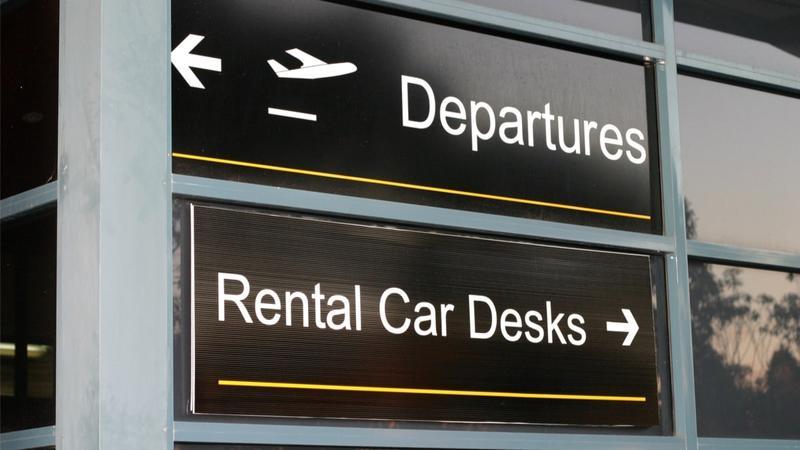This article has been updated from a previous version.
Whether you rent a car frequently or only occasionally, it’s important to understand how your car insurance policy applies to a borrowed vehicle and the risks you face if you choose not to purchase additional coverage.
Before heading off on the road, check with your car insurance provider to see if you require coverage offered by a rental company. Securing adequate coverage should be your number one priority when driving a vehicle other than your own.
In this article:
- Does my personal auto insurance policy cover me when driving a rental vehicle?
- What if I don’t have a personal auto insurance policy?
- When to buy insurance from the rental car company
- When to rely on rental car insurance coverage from your credit card company
- Conditions of rental car insurance coverage
Does my personal auto insurance policy cover me when driving a rental vehicle?
Most people believe their existing car insurance policy will transfer over to any car they rent. This is only partially true, however, and could result in a coverage gap if you don’t check before you go.
Contrary to common belief,car insurance does not follow the driver; instead, it follows the car. That means you are not automatically covered in any car you drive, including a rental car.
If you have rental car coverage on your policy in the form of an endorsement known as “Liability for Damage to Non-Owned Automobiles”, however, you can extend the coverage on your personal policy to any car that you choose to rent. This means that the same limits of your policy will apply to the rental car, including comprehensive and collision.
If you haven’t elected to add this coverage to your policy, you could end up having little to no coverage at all.
If you rent cars frequently, be sure to ask for this coverage when shopping around for car insurance. It usually costs less than $100 a year to add to your policy.
If you do add this endorsement to your policy, you may want to choose rentals that are similar to the car you own. If you choose a car that is costlier to repair or replace, your personal insurance policy may not have high enough limits to cover any losses.
What if I don’t have a personal auto insurance policy?
Of course, if you don’t have auto insurance, you can’t purchase an endorsement that extends your personal policy to a rental car.
The good news is that the rental car companies must provide the mandatory minimum amount of insurance (though rental agencies often purchase higher limits than the legal minimum). In Ontario, that means rental cars come with third-party liability , accident benefits, and uninsured driver. This coverage is included in the cost of renting the car.
But say you’re concerned about being on the hook for damages if the car is in a collision or is stolen. Basic insurance doesn’t cover these scenarios.
In that case, you’ll want to purchase a waiver from the rental car company. Most car rental agencies offer a collision damage waiver (often referred to as Car Rental Collision/Loss Damage Waivers). This is purchased on a per-day basis and added to the total cost. There is normally a deductible attached to the waiver — the lower the deductible, the higher the daily rate. It usually costs about $20 to $30 a day.
Waivers from rental agencies don’t constitute insurance. Insurance provides a settlement to policyholders following a covered incident. Waivers, on the other hand, are legal documents that prevent the rental company from seeking compensation if their vehicle is damaged while in your charge.
A collision and damage waiver ensures you don’t have to pay the full cost, if at all, for any damage or loss of the rental car. Some waivers also consider costs like towing, storage, not being able to use the car, extra fees, and any decrease in the car’s value.
However, the terms of collision and damage waivers vary by company. For example, some contracts don’t cover loss of use, towing, storage, and damage to the roof and windshield.
Waivers can also be voided if you drive on an ungraded road (some agencies now use GPS monitoring) and if you drive outside of the province and country. The takeaway? Always read the fine print of your contract.
Any losses to any belongings you might have stored in the car are not covered by damage waivers, either. Some rental agencies also offer Personal Effects Coverage (PEC) – which is insurance coverage, not a waiver – that will cover losses to items stored in the car.
PEC is usually sold with Personal Accident Insurance (PAI), which provides coverage for the renter and passengers in case of accidental death, medical expenses, and ambulance costs. PEC and PAI combined usually costs under $10 a day. PAI and PEC are not mandatory, so not all rental agencies offer them.
When to buy insurance from the rental car company
Most car rental companies will try to sell you their coverage for the rental car. This is usually a per-day rate and provides you with coverage for any damage to the vehicle that might occur under your watch.
The coverage offered by rental car companies is a good idea for anyone who does not have a vehicle of their own (and therefore no auto insurance policy), or for anyone who doesn’t have rental car coverage on their personal auto insurance policy.
But even if you do have rental car coverage, you should consider the extra coverage from the rental company anyway. In the event of a collision, the rental car company may require you to pay for damages up front and leave you to seek reimbursement from your own insurance company. That would mean a large out-of-pocket expense if there is any serious damage, or if the car is stolen and you are responsible for replacing it. Your personal car insurance premium will also increase when it renews.
It’s up to each driver whether they are willing to rely on their own insurance policy or choose to spend extra money on additional coverage from the rental company. For many people, the insurance on their own policy is enough to provide peace of mind that even if there is some initial up-front cost, they will not be left holding the bag if something goes wrong in a rental car.
When to rely on rental car insurance coverage from your credit card company
Some credit cards offer collision damage waivers that are valid for up to 31 days, potentially saving you hundreds of dollars on the cost of renting a car.
To access it, you must pay for the rental in its entirety using the credit card and decline coverage offered by the insurance company. If you have a rewards card, you’ll likely rack up some points or cashback.
You must also be in good standing with your credit card provider when you pay for the rental.
One thing to check out is whether your card provides primary or secondary coverage. When a card offers primary coverage, it means they will pay directly (up to coverage limits) without involving the provider of your personal car insurance policy, if you have one.
Some credit cards only offer secondary coverage, though, which means you must first file a claim with your personal insurer. The credit card company might then cover any remaining costs, like the cost of a deductible.
Conditions of rental car insurance coverage
Regardless of which route you choose, there are a few potential caveats you should know about.
When you use your own insurance to cover you when driving a rental car, you will need to stick to a few rules to ensure the coverage applies. Only drivers who are named on your policy will be covered while driving the rental car, so don’t let anyone else get behind the wheel of your rental.
Most car insurance companies have limits on who can drive as well. Usually, the named renter and that person’s spouse are permitted to drive, unless another driver is named on the rental contract (if not, they will need to obtain their own coverage while driving the rental).
If you’re not in your home province when you rent a car, it’s important to follow the local laws, rules of the road, and driving restrictions. Your insurance could refuse you coverage if you are found in violation of certain laws, especially graduated licensing restrictions.
Some credit card providers and rental car insurance companies could limit coverage if you drive your rental car outside certain geographical boundaries.
Here are some other exclusions that might apply to rental car insurance or waivers:
- Luxury sports cars, trucks, or specialty vehicles are usually excluded.
- Rentals longer than 31 days are usually not eligible.
- Your coverage may be voided if you use the car to do off-roading, racing, and driving under the influence.
- Personal injury or liability claims are not covered by collision damage waivers.
- Some credit cards don’t cover lost rental days due to repairs.
Whether you choose to use your own insurance or purchase insurance from the rental car company depends not only on your risk tolerance but also on how often you rent a car. For a one-off rental car, you may choose to simply purchase the rental car company’s coverage rather than add Liability for Damage to Non-owned Automobiles coverage to your personal policy.
If you rent frequently, however, the cost of adding the coverage to your policy is likely to be far cheaper than the cost of buying coverage every time.
Whatever option you choose, make sure you're covered and that you know what the claims procedure will be before you sign anything with a rental company. That way, in the unlikely event that something goes wrong, you won’t be caught off guard.

